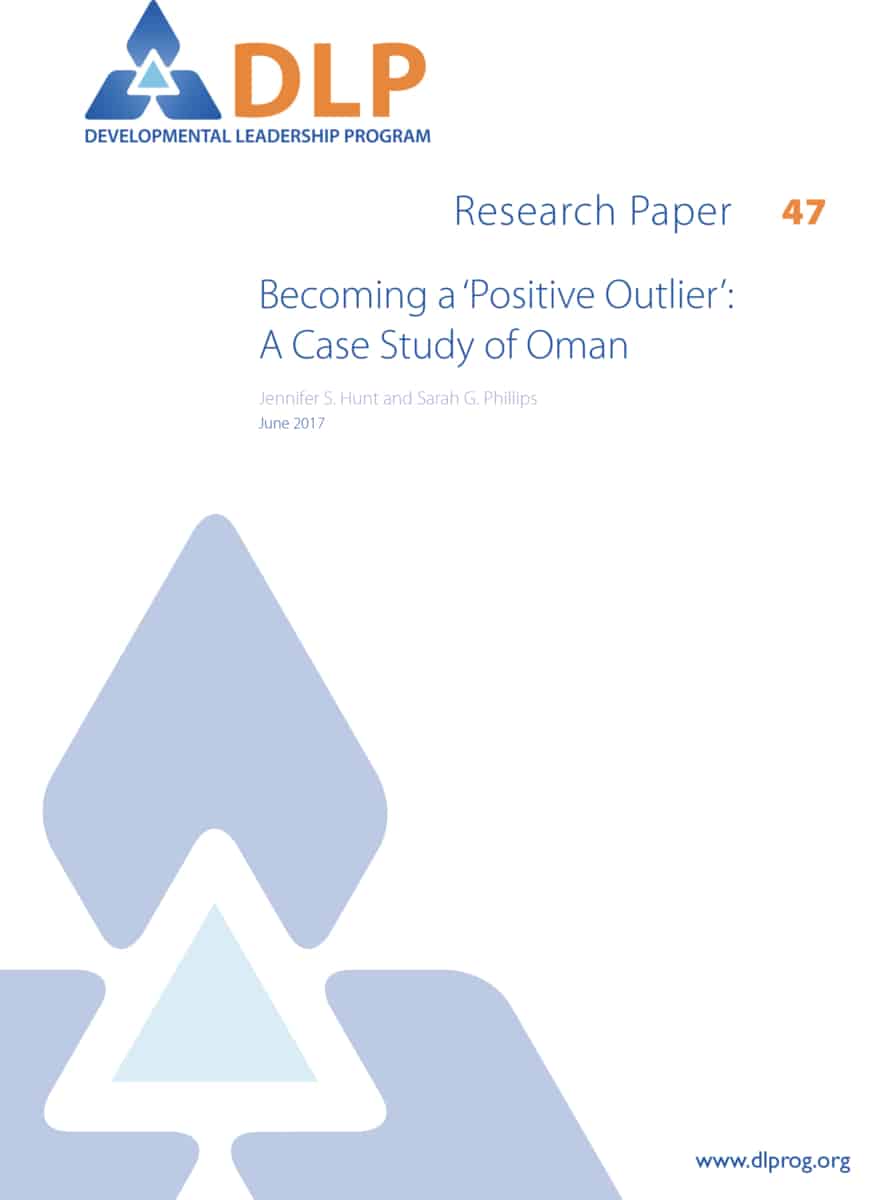At the time of the coup that brought Sultan Qaboos to power in 1970, Oman was considered to be ‘rushing headlong into the fifteenth century’. Within 40 years, however, Oman was ranked first on the United Nations’ list of the top ten ‘movers’ in the world, edging out other success stories like China and India. It is a ‘positive outlier’ to many post-colonial states, and confounds many of the usual expectations about the impact of rentier incomes on levels of domestic conflict and cohesion.
The paper illustrates the degree to which Oman’s developmental trajectory deviated from the orthodox ‘theories of change’ held by most contemporary development organisations. It highlights the importance of factors that are often held to be peripheral to processes of domestic change, particularly:
- quality secondary education;
- the (re)production of narrative; and
- the interplay of domestic and international power dynamics.
It argues that Oman’s rapid economic transition formed the essential backdrop to its developmental progress, and was the linchpin of the country’s early political settlement. Without the major economic changes, Sultan Qaboos would have had few outcomes with which to illustrate the purportedly stark difference between his leadership and that of his father. However, without also having access to a relatively well-educated group of citizens to staff the early bureaucracy, Oman is unlikely to have been able to sustain the economic development that has underpinned the settlement beyond the initial influx of revenue.
The political settlement emerged initially, therefore, out of a series of fortuitous junctures that culminated in the state’s unprecedented ability to co-opt, and sometimes coerce, the population with new oil revenues. The settlement has endured, however, to a significant degree because the nature of the transition was astutely reproduced in a narrative that has excluded alternative ways of understanding the changes Omanis were experiencing.










